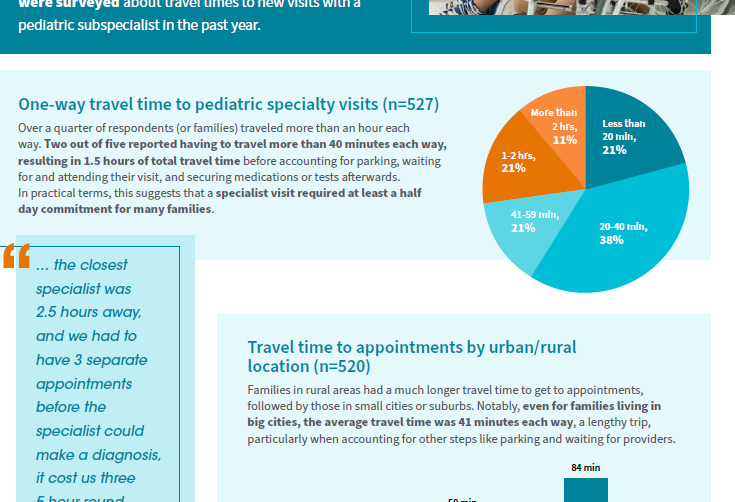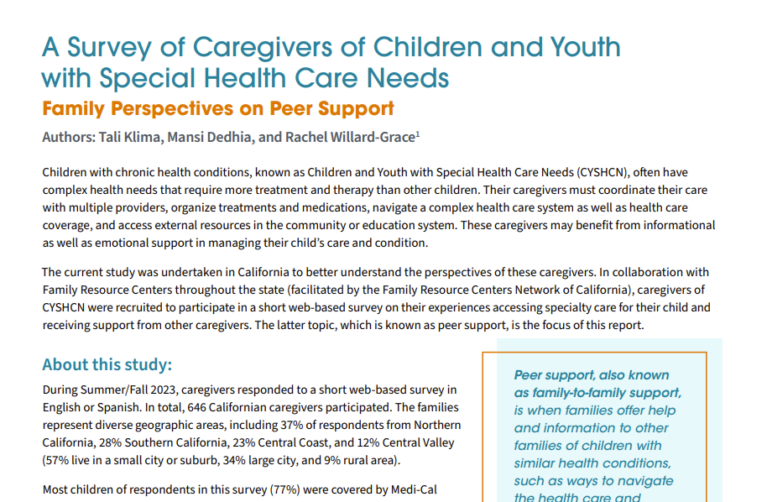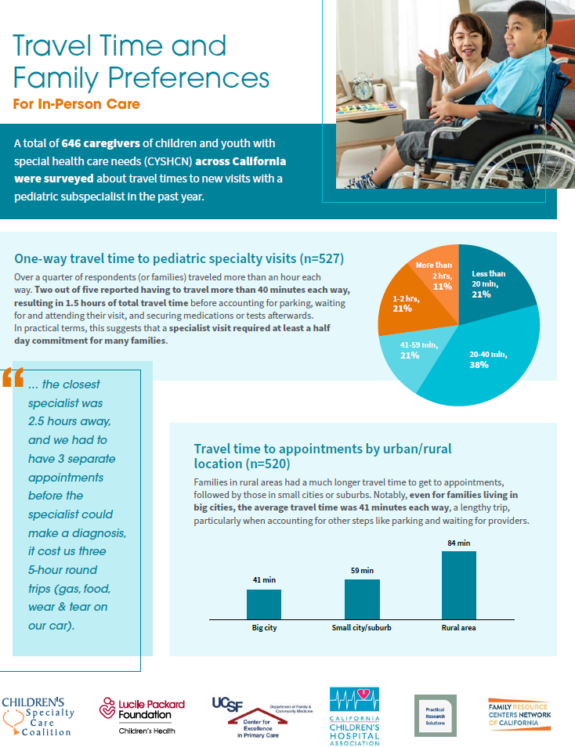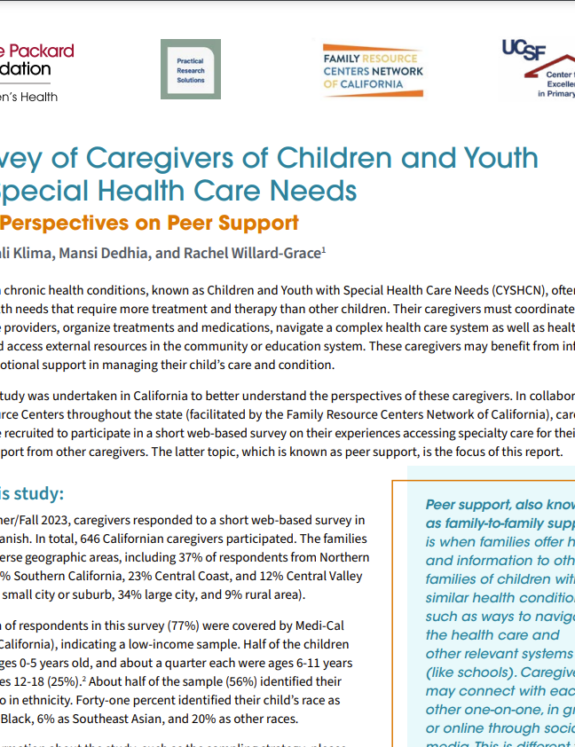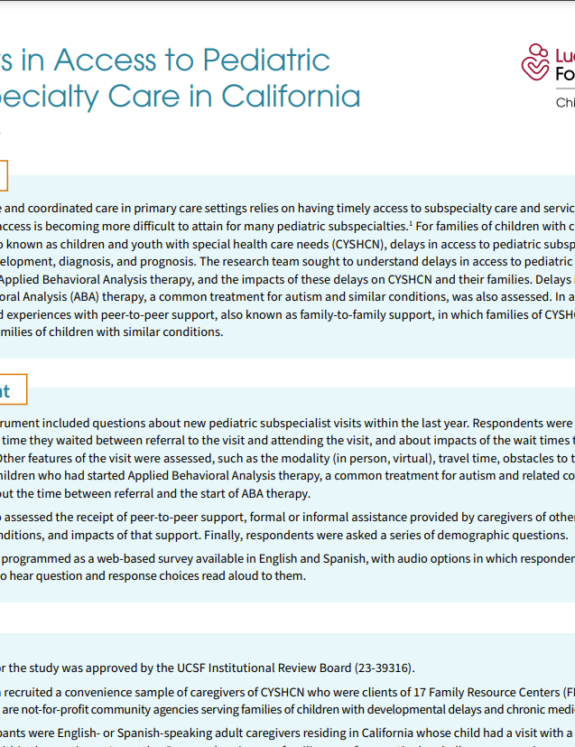Learning by Doing: Maternal Depression Screening and Family Psychosocial Risk Assessment
Awareness is growing about the impact of stressful early life experiences on individual health, the effects of which may extend into adulthood. To assure early identification of, and intervention for, these psychosocial risk factors, many are turning to child health professionals, asking them to incorporate screening for social determinants of health as part of routine preventive pediatric care.
Child health care practices are a logical place for this activity, as they offer a near universal point of contact with young children and their parents. Asking about, and screening for, psychosocial circumstances that might adversely affect children is something that child health care professionals are disposed to do, and something about which parents are comfortable in that setting.
However, screening must go hand-in-hand with appropriate responses, whether those consist of further questioning, reassurance, treatment, or referral to someone else in the community. Given the extensive list of problems that might be identified, e.g., family violence, homelessness, poverty, substance abuse, poor parental health, food insufficiency, etc., practices that engage in comprehensive screening must be prepared to handle what they uncover. Most are not. Achieving the capacity to effectively identify and address such problems can require changes in practice staffing, patient flow, time allocation, billing, and referral patterns and linkages to other service providers.
As a starting point, practices might choose to pick one risk factor to screen for and for which they can organize an effective response plan. One of the most frequently identified family psychosocial problems, and one that has clear implications for its effect on children’s development and well-being, is maternal depression. Pediatricians generally acknowledge responsibility for identifying this situation, yet few routinely screen for it. Research has shown that such screening is feasible and acceptable within pediatric practices. In addition, referrals to adult health care providers and mental health professionals, as well as to family support services, can begin the process of helping affected parents.
Once a practice has established patterns that enable staff to screen for a single risk factor, i.e., maternal depression, it then can build on that experience to incorporate more comprehensive psychosocial screening as part of its services.
